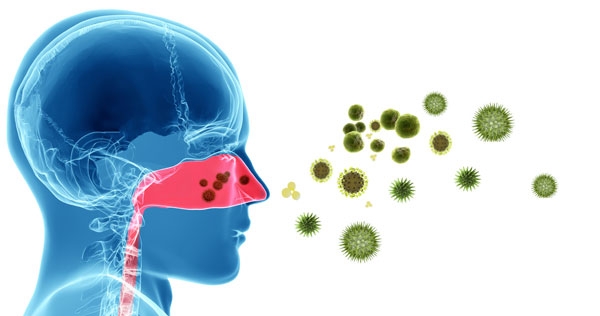Allergies are common. But, what is an allergy? An abnormal or unpleasant reaction of human immune system to allergens is called allergy. Allergens are substances that trigger allergies.
Allergens are broadly divided into the following categories:
- Airborne allergens: animal dander, dust mites, mold, pollens and other pollutants.
- Food allergens: eggs, fish, including shellfish, milk, peanuts, soy, tree nuts (walnuts) and wheat
- Insect stings: wasp and bee stings are common allergy triggers.
- Penicillin-based antibiotics may cause allergy.
- Latex and other substances that touch the skin may cause allergy.
When human body is exposed to any of the allergens, the body produces immunoglobulin E (IgE), an antibody that binds the allergen. Antibodies (proteins) are attached to the blood cells that are called mast cells and found in all parts of the body, including airways and gastrointestinal tract (GI). The mast cell attached to IgE releases various chemicals, including histamine, into blood. Histamine creates allergy symptoms. Both the body parts airways and GI featuring mast cells are highly vulnerable to allergen attacks. Risk associated with allergies increases in patients with family history of hay fever and asthma.
Common Symptoms of allergies
- Face may become red. Eyes, face and / or tongue may swell. If allergy is ascribed to an insect sting, the sting site may also swell (edema).
- Patients suffering from allergies feel ill, tired or week.
- Rashes are common during allergies. A rash with elevated red patches is called hive. Generally, hives appear on the face and the neck.
- Runny and itchy nose and sneezing may irritate the patient. Nose may become stuffy. Patient may have problem in breathing and swallowing. Coughing, wheezing or shortness of breath may cause discomfort.
- Tightness or discomfort in chest may occur.
- Other common symptoms include anxiety, dizziness, fear, light headedness, nausea, palpitation, red watery eyes and vomiting.
Food Allergy Symptoms
Food allergies are result of hypersensitivity to a food item. For example, peanuts cause anaphylaxis. The blood pressure of the patient suffering from anaphylaxis falls suddenly, which is fatal. Anaphylaxis may tighten and constrict airways. You may feel a lump in throat, thereby making breathing difficult. A shock may occur. Pulse may race.
Common symptoms of food allergies include :
- Diarrhea
- Eczema, hives, itching
- Fainting
- Itching or tingling in the mouth
- Stomach cramps
- Swelling of throat, tongue, face, lips…
- Vomiting
